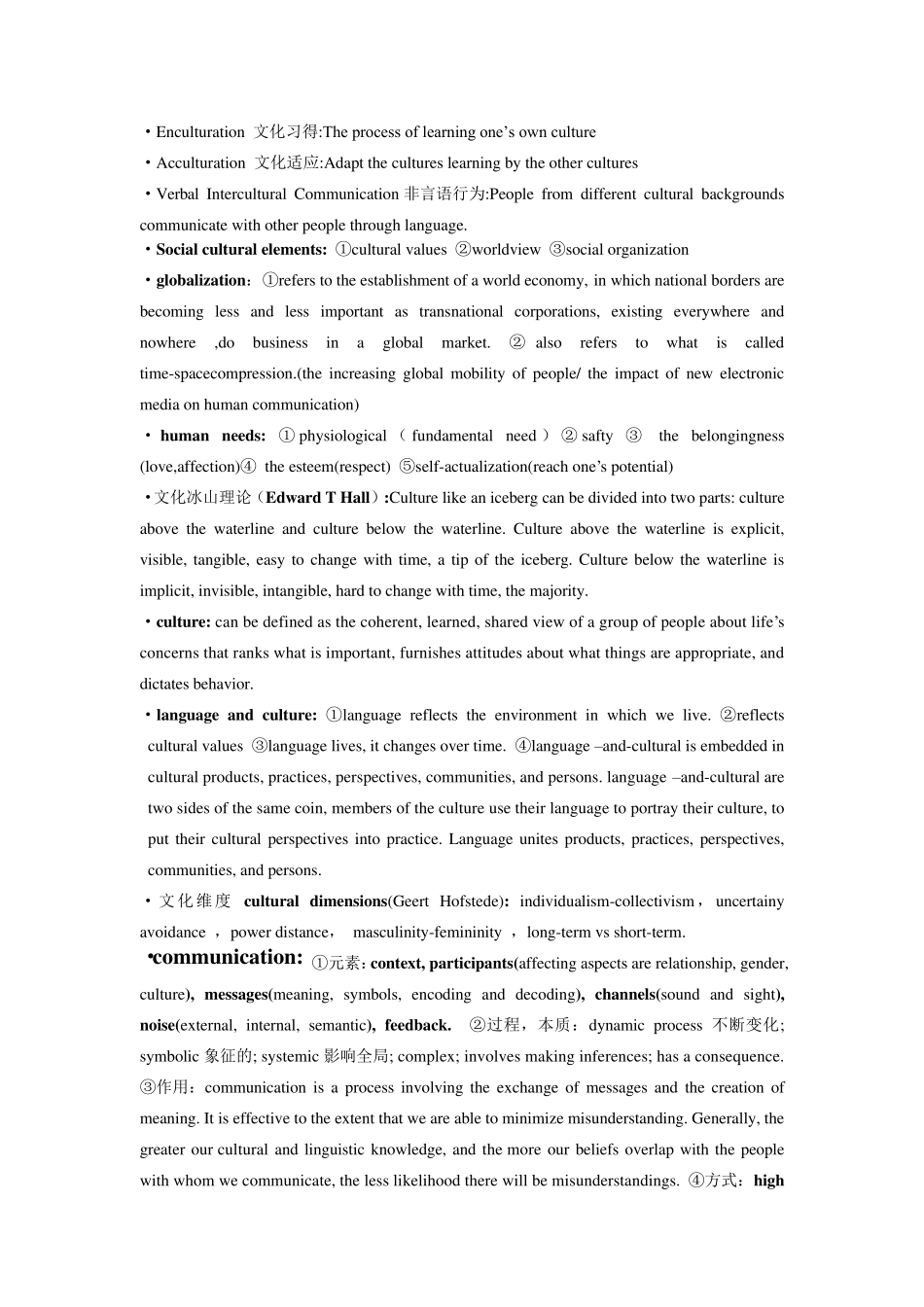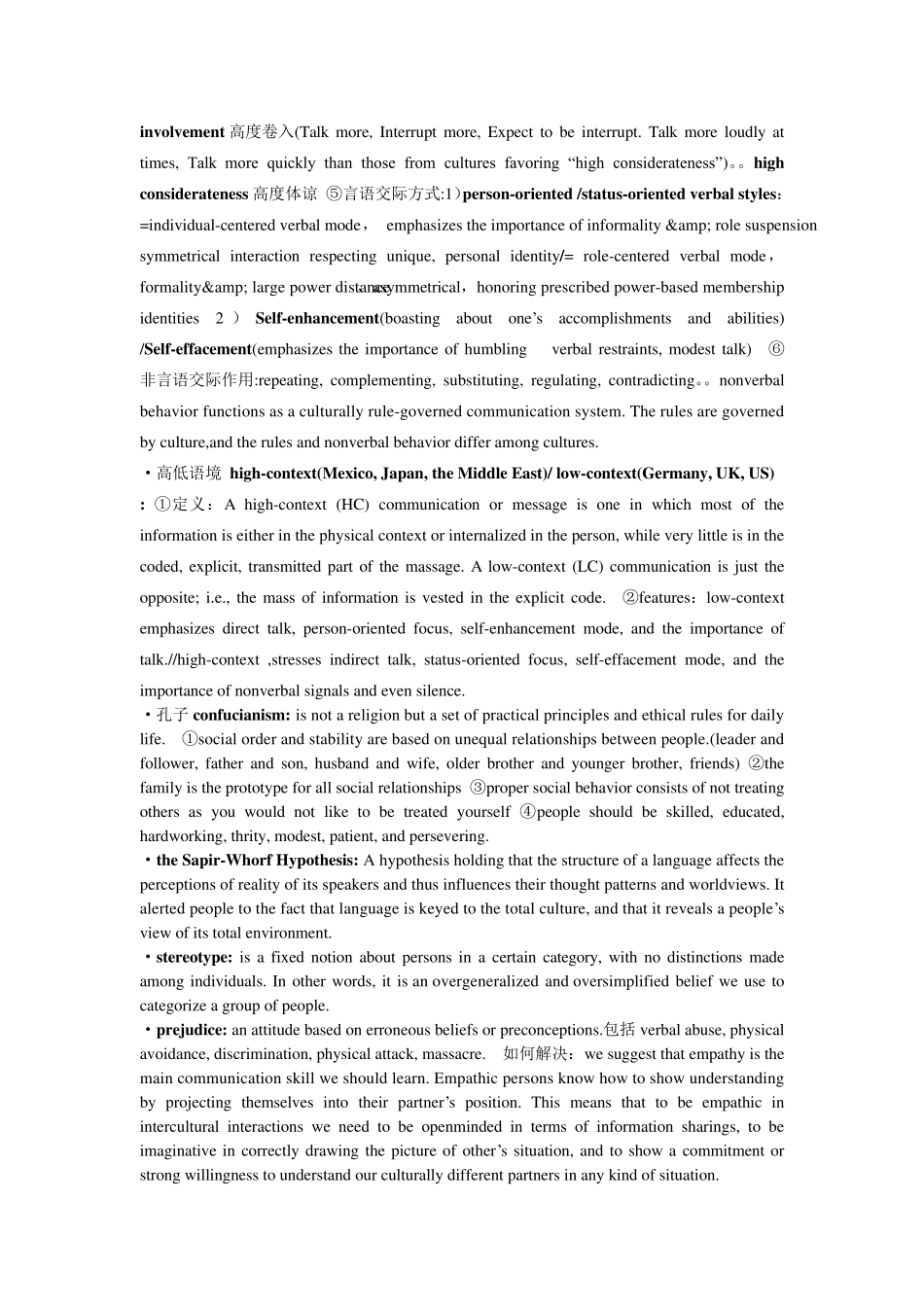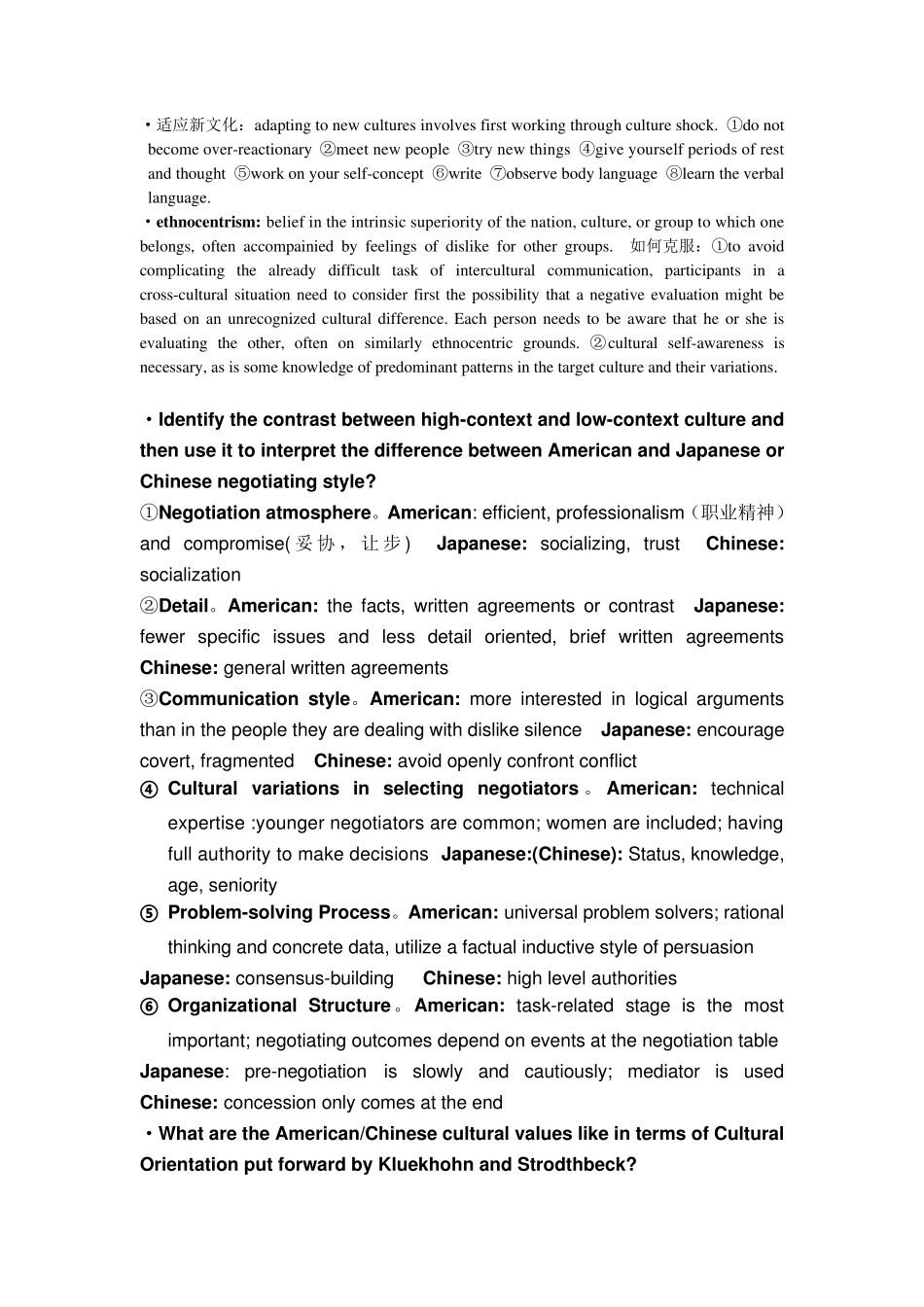·Enculturation 文化习得:The process of learning one’s own culture ·Acculturation 文化适应:Adapt the cultures learning by the other cultures ·Verbal Intercultural Communication 非言语行为:People from different cultural backgrounds communicate with other people through language. ·Social cultural elements: ①cultural values ②worldview ③social organization ·globalization:①refers to the establishment of a world economy, in which national borders are becoming less and less important as transnational corporations, existing everywhere and nowhere ,do business in a global market. ② also refers to what is called time-spacecompression.(the increasing global mobility of people/ the impact of new electronic media on human communication) · human needs: ① physiological ( fundamental need ) ② safty ③ the belongingness (love,affection)④ the esteem(respect) ⑤self-actualization(reach one’s potential) ·文化冰山理论(Edward T Hall):Culture like an iceberg can be divided into two parts: culture above the waterline and culture below the waterline. Culture above the waterline is explicit, visible, tangible, easy to change with time, a tip of the iceberg. Culture below the waterline is implicit, invisible, intangible, hard to change with time, the majority. ·culture: can be defined as the coherent, learned, shared view of a group of people about life’s concerns that ranks what is important, furnishes attitudes about what things are appropriate, and dictates behavior. ·language and culture: ①language reflects the environment in which we live. ②reflects cultural values ③language lives, it changes over time. ④language – and-cultural is embedded in cultural products, practices, perspectives, communities, and persons. language – and...


